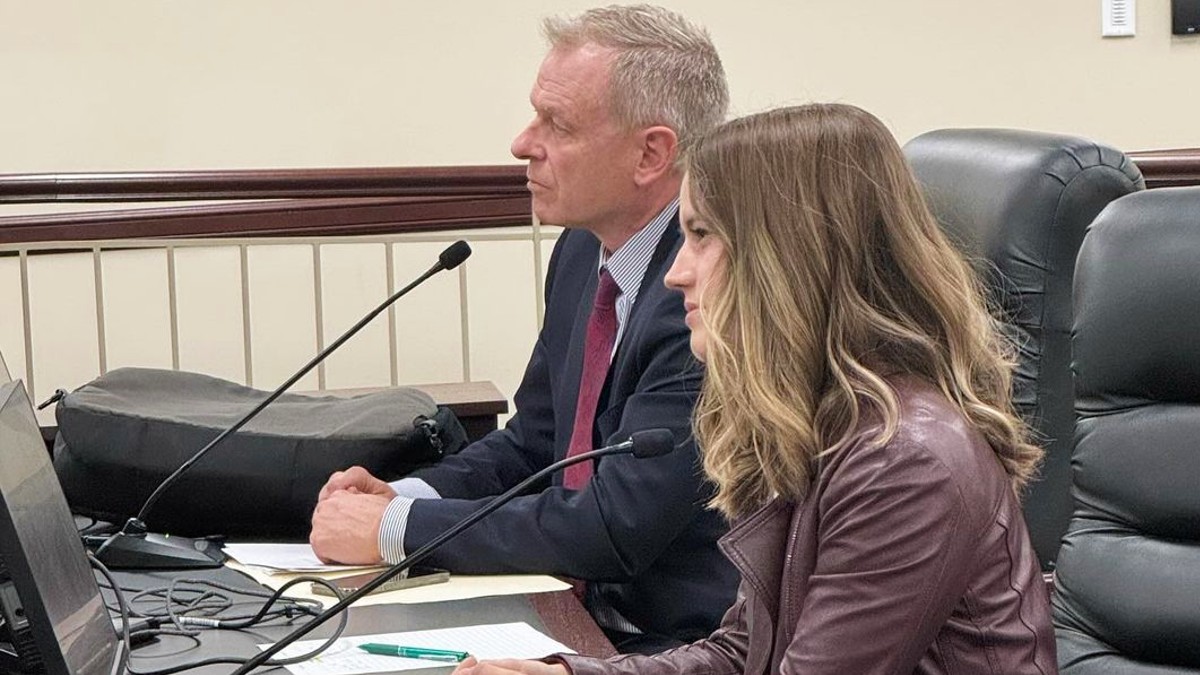‘Payment was usually a bribe’: Shari Franke speaks out on the harrowing reality of family vlogging

Shari Franke and her five siblings had their entire childhoods documented publicly on the 8 Passengers YouTube channel. Recently, she shared her family vlogging story with the Utah House of Representatives, exposing the terrible realities of the phenomenon.
Franke is the oldest daughter of convicted child abuser Ruby Franke. However, she urged the Utah House of Representatives to temporarily see her not as the victim of Ruby but as a victim of family vlogging. After all, long before Ruby came into contact with Jodi Hildebrandt and inflicted extreme abuse on her youngest children, all of her children had already been long-time victims of child labor and exploitation. The 8 Passengers channel began in 2015 and reached over 2 million subscribers at its height. Ruby posted daily vlogs for years, documenting every detail of her six children’s lives.
Similar to other family vlogging channels like Bratayley, Shaytards, Tannerites/Yawi Family, and April & Davey, 8 Passengers often capitalized on the children’s most private moments. Numerous videos documented in detail things like a child’s illness, injury, acne, first crush, temper tantrums, or school struggles. Entire Reddit snark threads and gossip forums sprouted up, where hundreds of users gossiped about, mocked, criticized, and speculated about the six minor children. Now, Franke is telling the whole story of what went on behind the scenes.
Shari Franke tells her story
Franke recently sat before the Utah House of Representatives to share her story. She also released her complete statement on Instagram. Her goal is to eventually ban family vlogging altogether. However, she realizes it will take time to get to that point, and she doesn’t yet know how to tackle this huge issue. Instead, she wanted Utah’s representatives to hear her story and hopefully be moved to act by it.
First, she explained that family vlogging is a full-time job for children. In her case, it involved “employees, business credit cards, managers, and a marketing strategy.” The unique thing about family vlogging is that its employees are children who, for some reason, don’t have to be paid or even consent to work as child influencers. For her family, YouTube became their “primary source of income.” While she was paid as a child, she noted there was no structure to her payments. Unlike child actors, a mandatory percentage of revenue wasn’t given to her or set aside in a trust fund. Instead, payment was sporadic and “usually a bribe.” She recalled being rewarded “$100 or a shopping trip” if she “filmed a particularly embarrassing moment.” Often, she was told family vacations and outings were her payment, even though the only reason these vacations were possible was because of the income she and her siblings generated.
All payments to children in family vlogging are unregulated, done under the table, and with no paper trail. Hence, children don’t have to be compensated adequately or at all. Meanwhile, Frank emphasized that even if children are paid, it doesn’t “excuse the 24/7 labor these children are subjected to.” As a child, Franke knew she was an employee, forced to work and share her most private moments and hardships to keep the business successful, including filming the time she accidentally waxed off her eyebrow and sobbed on camera or getting a “leading role” in the vlogs because she was “violently ill.” The lack of privacy wasn’t the only issue. She was also subjected to horrific comments calling her a “baby birthing machine” at 13 and accusing her of having sexual relations with her own brother. She lost friends who didn’t want to be filmed all the time.
Franke admitted that she defended her family’s vlogging as a child and claimed she consented. As an adult, though, she now realizes there is no such thing as consent in child vlogging. She suggested children of family vloggers develop Stockholm Syndrom about vlogging. They are brainwashed into believing they enjoy it and consent to it without realizing the bribery, shaming, and coercion that goes into it. It’s astounding that children aren’t required to give consent to essentially sell their “soul to the world” and partake in unregulated, 24/7 child labor. She confirmed that, given the chance, she would choose to have an empty bank account over putting her childhood on the internet.
Franke is among the first children from a major former family vlogging channel to candidly speak out and share her story. Sadly, many now-adult children from family vlogging channels like the Shaytards, Bratayley, and YAWI Family still haven’t processed what happened to them and continue pursuing vlogging as a career. Some of them, like Branson Tanner, have already started vlogging their own children. The next generation of family vloggers is already here unless action is taken to stop it.
Franke’s story can’t have been easy to share, but it demonstrates what children really go through, as well as the manipulation and brainwashing they undergo to ensure they defend what’s happening to them. Meanwhile, Utah, a vlogging hotspot for Mormon families, is the best place to start pushing change. Her story is the first step in preventing another generation of children from facing exploitation and trading their privacy and livelihood for their parents’ internet fame.
Have a tip we should know? [email protected]